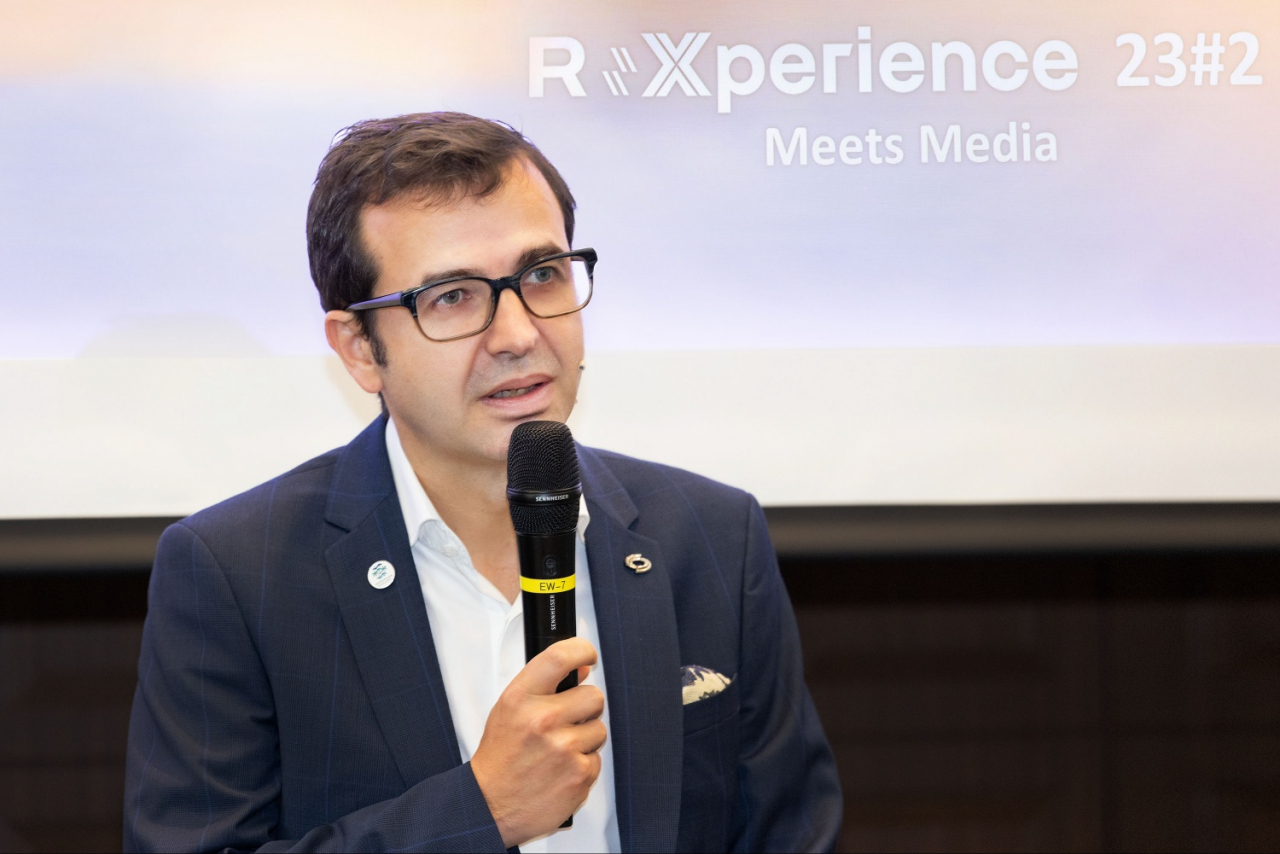 |
Renault Korea Motors CEO Stephane Deblaise speaks during a press conference at the Korea Press Center in Jung-gu, Seoul, Thursday. (Renault Korea Motors) |
Amid fierce competition among carmakers in the Korean electric vehicles market, Renault Korea Motors vowed to accelerate the launch of hybrid cars running on an electric motor along with a gasoline engine until it boosts battery-powered vehicles in 2026.
“Under our Aurora Project, we’re preparing for two types of batteries for hybrid cars and EVs. The company is working with battery suppliers inside and outside of Korea,” said Renault Korea Motors CEO Stephane Deblaise during a press conference in Seoul.
“Korean companies (have shown a stellar record in) battery production. In terms of Renault’s current hybrid car lineups, we’ve had a long relationship with LG Energy Solution.”
Noting that developing battery-powered EVs is a pressing issue, Deblaise, however, said the utmost goal of the Korean unit is to successfully roll out hybrid cars under the codenames Aurora 1 and 2.
“The project (of developing the new hybrid models) is on track. (We aim to complete development of) the first prototype car next month and launch it by the second half of 2024,” he said. “The key features of the car would be amazing car infotainment, roomy space and design.”
The CEO referred to Korea as one of the toughest automotive markets, considering that one carmaker -- that being Hyundai Motor Group -- controls 80 percent of the market here.
“But we always find a way to create a unique value for our customers, for example with XM3 E-tech Hybrid, the best car in the segment,” noted Deblaise, adding that the company has built a new leadership team consisting of global experts to lead marketing and sales as well as business in the highly competitive market.
Before the launch of Aurora 1, Renault Korea’s survival strategy is to make updates to its current cost-effective hybrid model and cut the price of gas-powered vehicles, according to the CEO.
Renault’s small sport utility vehicle XM3 1.6 GTe Inspire model will be upgraded next year with the price set at 26.8 million won ($20,300). The Design Package model of the XM3 E-tech Hybrid will add new gold colors to the bumper.
The price of the midsize SUV QM6 Quest LPG LE and QM6 Quest RE, its high-end model, will be reduced by 910,000 won and 1.95 million won to 28.4 million won and 31.7 million won, respectively.
The value-up, or price-cutting, strategy could be appropriate for existing models, yet that might not be the case for upcoming cars, for which it would add more value to the product, Deblaise said.
The CEO also stressed that the Korean unit’s Busan plant aims to expand exports to Europe. The plant has led the engineering and design processes and production of the Arkana SUVs shipped to Europe.
In terms of the relation between the plant’s labor union and management, he explained there has not been any conflict since last year, when the two parties reached an agreement.
“But the tentative agreements such as wage hike have failed to pass the vote by the plant workers. The issue is still pending between the union and employees,” Deblaise said.
Concerning the deal with the city of Busan to scale up the plant for EV production, the CEO said the ballpark figure of the investment has been decided, however, the company is still looking into viable options to attract investment. In June, Renault Group Vice Chairman Guido Haak met with Busan’s mayor to discuss producing 200,000 battery EVs annually at the production site.
When asked if Renault Korea has any plan to change its logo from a typhoon to its signature rhombus-shaped symbol, which has seen growing preference from Korean customers, the CEO said “nothing is decided yet.”
Renault Korea has used the typhoon logo since 2000, when Samsung acquired the Korean unit. It has not changed the logo even after the conglomerate ditched the automotive business in 2021.







![[Today’s K-pop] Blackpink’s Jennie, Lisa invited to Coachella as solo acts](http://res.heraldm.com/phpwas/restmb_idxmake.php?idx=644&simg=/content/image/2024/11/21/20241121050099_0.jpg)